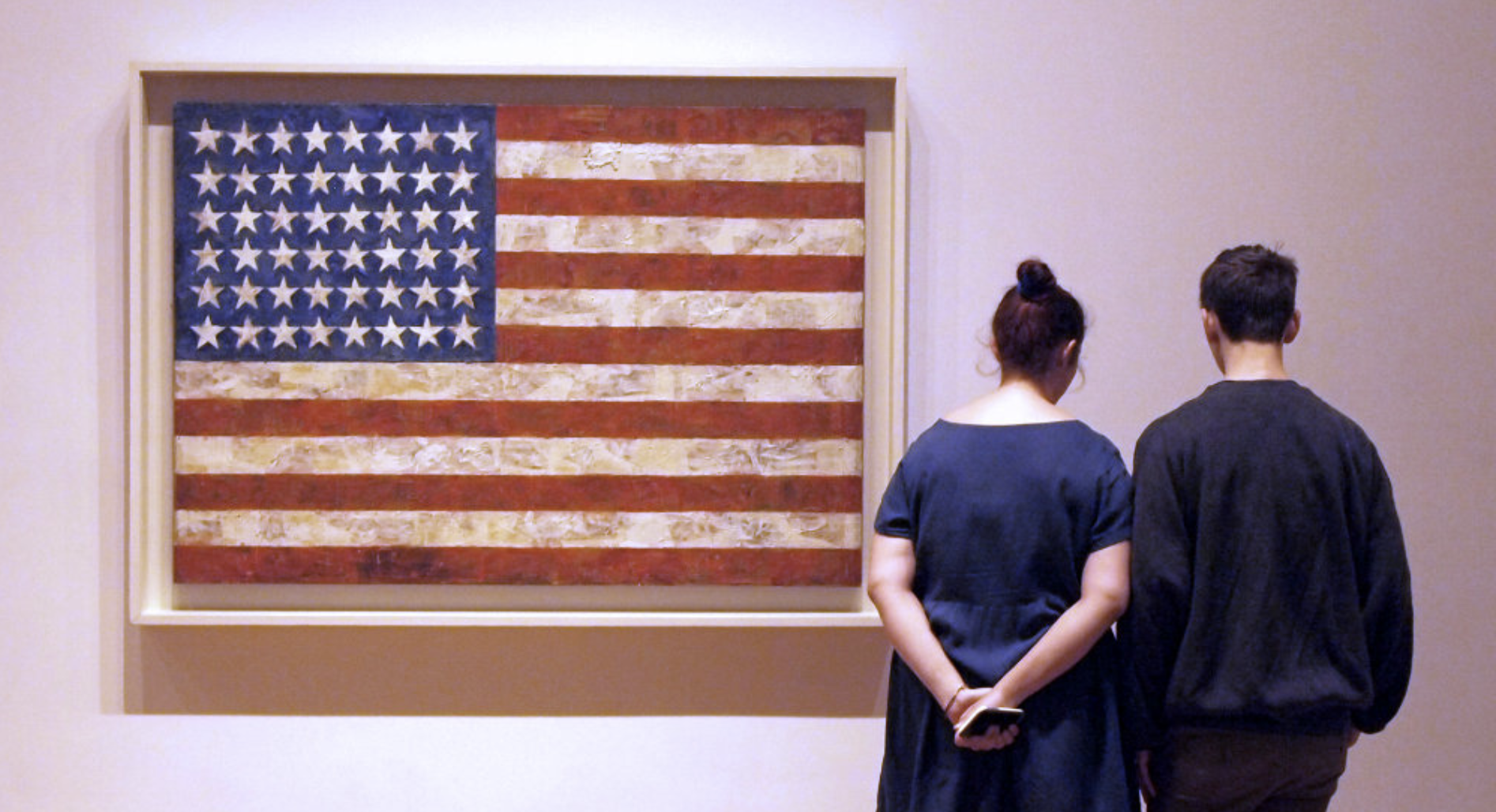At the memorial service for the late John McCain, our divided political elite came together to voice their apprehensions about our democracy. Better late than never; having indulged in an increasingly preposterous American moral imperialism for decades, it is indeed time for them to reconsider. A good place to begin would be with the cliché, common both here and abroad, that Trump is undermining or has already destroyed a ‘liberal world order’. But what ‘liberal world order’ are we talking about?
When NATO was founded in 1949, it included Portugal and Turkey, hardly exemplary democracies. Franco’s Spain was a de facto member since its military alliance with the US in 1959. The UK fought a bitter war in the early fifties in a futile attempt to keep Kenya, and France vainly defended its hold on Indo-China and later Algeria. The US hardly concentrated on exporting democracy, since it was busy with installing compliant dictatorial regimes around the globe. No doubt, the domestic institutions of the western nations provided for freedoms unimaginable in the Soviet bloc, but the comparison is facile. Move to the recent past and include in the recent version of order the oil kingdom of Saudi Arabia and the indispensable power, China – neither of these regimes bear the imprint of John Stuart Mill or John Dewey.
The collapse of democracy in the eastern members of the European Union is recent, but it preceded the advent of Trump. To what extent the economies of the US and the EU generate optimal conditions for the development of a liberal culture is a large question to which the voters for the UK Independence Party, the Front National and the Alternative for Germany, as well as those attending Trump rallies in our own country, offer rather depressing answers. Trump is not the cause of the disruption or even the decomposition of what went before, but a consequence of it.
The exhaustion of the American model
Trump’s slogan ‘making the US great again’ is an obsessive denial which bespeaks insight, however dim. I recall an interview with a citizen who supports Trump and who was very unlikely to have been a subscriber to Foreign Affairs. She approved of his putting other nations in their place, taking orders. The elite assembled in the National Cathedral for the late Senator McCain’s memorial service included many who lived not for but from American hegemony. Their modes of denial are polysyllabic, footnoted. It is denial none the same, and they would have served us better had they been capable of criticizing our moral imperialism.
Once asked as Germany capitulated in 1918 what he proposed, Max Weber replied, ‘a new general staff’. Germany’s early twentieth-century academics, bankers, industrialists and officials were cultivated, in one sense model Europeans. Their nationalism, however, encouraged the Nazis to crawl out of the gutter. Read the reports of the US National Intelligence Council, year by year. The authors, in government or the universities, or commuting between the two, have been everywhere, read everything, met everyone. They cannot, however, bring themselves to admit what is obvious: US hegemony, whether depicted as leadership of the ‘free world’ or put in more open terms, is no longer possible. Having known Brandt’s Germany and de Gaulle’s France, I would say it was already being severely reduced even a half century ago.
American domination of much of the world was never unchallenged. It was the result of a situation which followed the two terrible wars of the twentieth century and which has now ended. The recovery of Europe, the rise of China, the emergence of the BRIC nations as a power grouping, the Asian powers and the as yet unrealized economic potential of much of Africa and Latin America, confront us with a future in which our geopolitical advantages (continental size and oceanic moats) will have to be used in ways very different from those of the immediate past. US military power has not, for decades, been anything but an instrument of self-inflicted disasters.
The German foreign minister recently proposed a new international exchange system which would dispense with the dollar as standard currency. Behind the proposal there is much more than a response to Trump – who has accelerated a process already begun. The US economy of course attracts foreign investment, not least because our financial and regulatory structure is weighted in favour of capital. As a socio-economic model, however, the US has lost the attraction it once exerted, especially in Europe, where consumer protection, educational standards and availability, and the provision of social benefits account for more social equality. The European welfare states have their own political and economic problems, but their crises are qualitatively and quantitatively different, have their own starting points and are exceedingly unlikely to be resolved by the adoption of the American model.
Global transformations
A new mode of production entailing digital means is changing, for segments of the labour force, the nature of work, the continuity of careers, and the culture of the workplace. Marx published Capital one hundred and one years ago and even then, his assumption of a uniform labour force (monolithically subordinated) was more metahistorical than empirical. In the industrial societies, we now have a process which combines technical segmentation with uniformity of exploitation. Meanwhile, the populations of agrarian nations are being incorporated into a global society in ways which differ from their recent past.
Eric Hobsbawm described the urbanisation of much of the world as the major residue of the twentieth century. It remains to be seen what long-term cultural and political consequences these processes will entail. Mao declared that the country would conquer the city by enveloping it. Now, not least in China, the city is recasting the country. Simultaneously, the city itself is changing. Engels described Manchester in 1844 and even in his lifetime, its nascent industrial work force had been transformed. The displaced union members in the Midwest who voted for Trump have counterparts in Europe who voted for Brexit, or the xenophobic parties on the Continent.
Substantial elements in the development of the welfare states in Europe and the US were currents of ethnic and national solidarity as well as ideas of social justice. The films of the GM workers emerging triumphant from their legendary occupation of the factory in 1936 to secure recognition of their union shows them carrying American flags. It is useful to recall that Nazi stands for the German National Socialist Workers Party. Today, we confront an abrupt conjunction of technological change and the tensions generated by migration. The environmental changes afflicting much of the globe, economic deprivation and ethnic and religious conflict will account for larger migratory movements into the northern hemisphere than those now altering its already unstable political equilibria.
The return of religion
The social movements of the sixties in the US and Europe had profound if sometimes unacknowledged religious roots. We know about the Afro-American churches. The period of the Second Vatican Council legitimised an entire strand of Roman Catholicism that had been suppressed before Pope John called it forth again. The German activists of the sixties, including the founders of the Green Party, were often rooted in their churches (and seeking amends for the churches’ collaboration with the Nazis). The largely secular Jewish component of the movement of the sixties in our country drew upon Jewish traditions somehow transmitted and intuited in quite subliminal ways.
What was overlooked then but hardly now is the persistence of other sorts of lifeworld integration through very different uses of religion. The refusal of the Evangelicals to declare themselves out of date surprised many of their fellow Protestants. It struck them as breaking an implicit bargain with the rest of the nation, in which a decidedly polite, polished and non-obtrusive Protestantism was accepted as a central component of American faith, if mainly on Sundays and with little reference to Cotton Mather.
Judge Kavanaugh recently explained (not entirely convincingly) that the attack of 11 September 2001 changed his views of presidential legal liability. For most of the rest of the citizenry, it apprised them of a matter they had never thought much about before: Islam. The Egyptian and Algerian revolutions had impressed our foreign policy elite without turning their attention to Islam, and the Muslim separatism in India which led to the formation of Pakistan was a matter for the historians. The CIA’s large interventions in Iran and later Indonesia were a matter for CIA alumni and alumnae to talk about when they met for coffee at the McLean Family Restaurant. Even in nations with long and close ties to Islam, France, Spain and the UK, Islam seemed in the fifties and sixties not to be a major concern, whether in the academy, in government, or in journalism – despite the beginning of a very large movement of Islamic immigrants from Asia and Africa.
It is entirely possible that the pluralistic and secularised cultures of the West may experience large religious revivals – or new religious movements. It is a possibility we are now hardly prepared to deal with. The Putin regime in Russia is inextricably bound to the Orthodox Church in its most regressive form (a term which presupposes a progression which may be indefinitely delayed). Our public discourse about Russia is loudly silent on the new vestments of a very old church.
We are somewhat more prepared, in terms of intellectual and even political resources, to deal with the environmental disasters that are now succeeding one another in ever quickening rhythms – the consequences of our failure to take sufficient account of what our scientists have known for some time. Different societies have rather different levels of awareness of these dangers. Here, the major western European political parties and the EU are quite advanced, by comparison with the sectors of American society allied with Trump.
Trump gone, the mordant philistinism and stupid denial of his camp will persist. In a way, one understands them. A serious effort to confront the intensifying destruction of our habitat will in the end require cultural changes, institutional innovations, and everyday behavioural patterns quite beyond contemporary imagination. We are still bringing bottled water to Flint, where lead poisoning has made the tap water undrinkable for many years. This is representative of a wider failure of politics in our country.
What now?
The idea of a nation defined through an idea of citizenship is neither new or specifically American, but our own historical struggles to realize it have been real: read the letter by Marx to Lincoln, congratulating him on his re-election. We need a period of experimentation, somewhat like the one that gave us Hopkins and Perkins, to inform the political sensibilities of the new social movements breaking into electoral politics. It would be a grave error to write off the population which moved from passivity or very routinized support for an increasingly rigidified Democratic Party to vote for Trump.
I am quite unsure of how to proceed. The article I wrote in 1968 for The Nation, entitled ‘The Staggering Colossus’, ignored nearly everything that was near the surface, or even at it, in that year. It was published in September but written before the famous ‘blood, sweat and teargas’ Democratic Convention in Chicago in 1968, which greatly facilitated Nixon’s election in November, and before the Soviet invasion of Czechoslovakia, which terminated hopes of serious changes toward more freedom, more experimentation with pluralism, by the ruling parties of the Soviet bloc. The article was in fact much too optimistic about the readiness of western citizenries to add a large dimension of participatory democracy to their ideas of politics. It was no less overly optimistic in describing the educated as a vanguard, able and willing to replace technocratic obedience to capital by an alliance across the class spectrum for economic democracy. The essay anticipated my 1969 book, The Crisis of Industrial Society, which was quite widely translated and discussed – and quite wrong in its expectations of imminent changes.
The descendants of the nineteenth century immigrants scorned then by the locals are today wasting their energies in attacking the new immigrants. An alliance of Afro-Americans, Asians, Latinos, together with the progressive elements of the educated white population, will have to find ways to expand its reach or accept a condition of permanent electoral instability, which would make long term reform projects impossible. For the foreseeable future, very little can be expected from western Europe by way of new impulses or ideas. The collapse of the Brazilian Workers Party, the defeat of the Indian National Congress Party, or the troubles of the ANC, convey the message that we are indeed on our own.
About the new American socialism advanced by some of the Democrats – this much: I write as a founder, together with Michael Harrington and Irving Howe (and the backing of the United Auto Workers), of the predecessor of Democratic Socialists of America in 1973. Today, American socialists demand Medicare for all, free college (Lincoln’s project with the Land Grant Act), a high minimum wage, guaranteed employment. These policies could indeed make the US more resemble western Europe. Socialism, however, would require public corporations and worker participation in their governance.
All this being said, we were right about one thing: a responsibility is incumbent upon us as citizens to follow our intellectual vocations wherever they might lead. I have written this as a decidedly melancholy confession, but consider that intellectual and moral persistence is the only life sustaining alternative.







